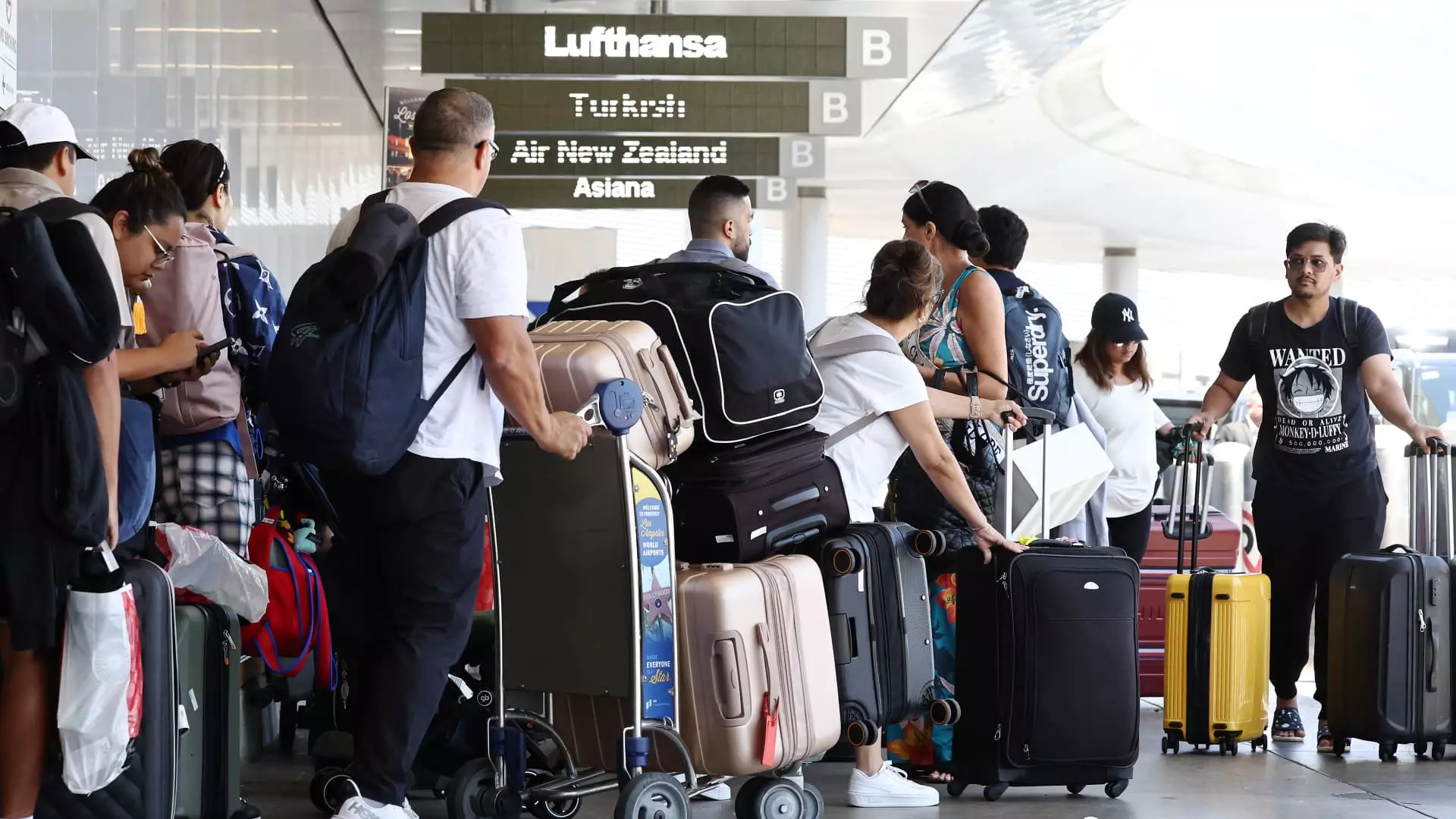The summer air travel season in the United States is anticipated to reach unprecedented heights. The Transportation Security Administration (TSA) recently screened a remarkable 2.99 million individuals on Sunday, June 23, which surpassed a previous record set just weeks earlier on May 24. The TSA is predicting a historic July 4 holiday period with over three million flyers expected to be screened on Friday, leading into the Independence Day week. The agency forecasts that more than 32 million travelers will pass through security checkpoints between Friday, June 28, and Monday, July 8, representing a 5.4% year-over-year increase in holiday travel.
The surge in air travel comes at a time when airlines are grappling with numerous challenges. From supply chain disruptions to stringent regulations, the Boeing safety crises hindering the introduction of new aircraft into the market, air traffic controller “fatigue,” extreme weather-related delays, and rising operational costs squeezing profit margins, the industry is facing a multitude of issues. The onset of the summer rush caught airports off guard, resulting in over 6,000 flight delays on the East Coast alone by the evening of May 24. Although there may be an adequate number of flights to meet the demand, the record-breaking travel volumes are presenting challenges for airports, airlines, and passengers.
Despite the obstacles, airlines are expressing confidence in their ability to navigate the busy summer season. Delta Air Lines CEO, Ed Bastian, highlighted the company’s outstanding performance levels, asserting that it has achieved the “best first-quarter reliability” to date. However, effective coordination will be crucial to ensure smooth operations. American Airlines CEO, Robert Isom, emphasized the importance of running a reliable airline, acknowledging that various factors, including weather and air traffic control issues, can impact on-time performance. The Federal Aviation Administration identified a shortage of up to 3,000 air traffic controllers, underscoring the necessity for improved coordination to avert congestion and delays in the airspace.
The summer travel season is susceptible to disruptions caused by extreme weather patterns across the United States. The National Oceanic and Atmospheric Administration has forecasted stormy conditions across the Midwest and East Coast, alongside persisting dangerously high temperatures in the Southwest and Northeast. Technical glitches resulting from high temperatures and thin air can lead to delays and cancellations. To mitigate these risks, travelers are advised to consider early morning or late-night flights and to anticipate contingencies to optimize their travel experience.
Despite the apprehensions surrounding the summer travel season, industry experts and analysts are optimistic about the preparedness of airlines and airports compared to previous years. United Airlines and American Airlines are projecting significant upticks in summer departures, indicating a positive trend in travel demand. Improvements in air traffic control coordination and the collaboration between federal and local authorities have helped address some of the operational challenges faced during peak travel periods. However, the lingering issues in aircraft production and escalating operating costs pose long-term uncertainties for the industry, potentially leading to fare hikes and diminished fleet capacities in the future.
As more infrequent flyers embark on summer vacations, it is essential for travelers to stay informed and prepared for potential disruptions. Signing up for airline apps, such as TSA PreCheck and Clear, can expedite the security screening process, while utilizing flight tracker applications can provide real-time updates on flight statuses. Understanding the factors influencing airfare pricing, such as route selection, booking timelines, and additional fees, can help travelers secure the best deals amidst fluctuating market conditions. By staying proactive, informed, and adaptable, travelers can navigate the complexities of summer travel and make the most of their journey, regardless of unforeseen challenges and uncertainties.

